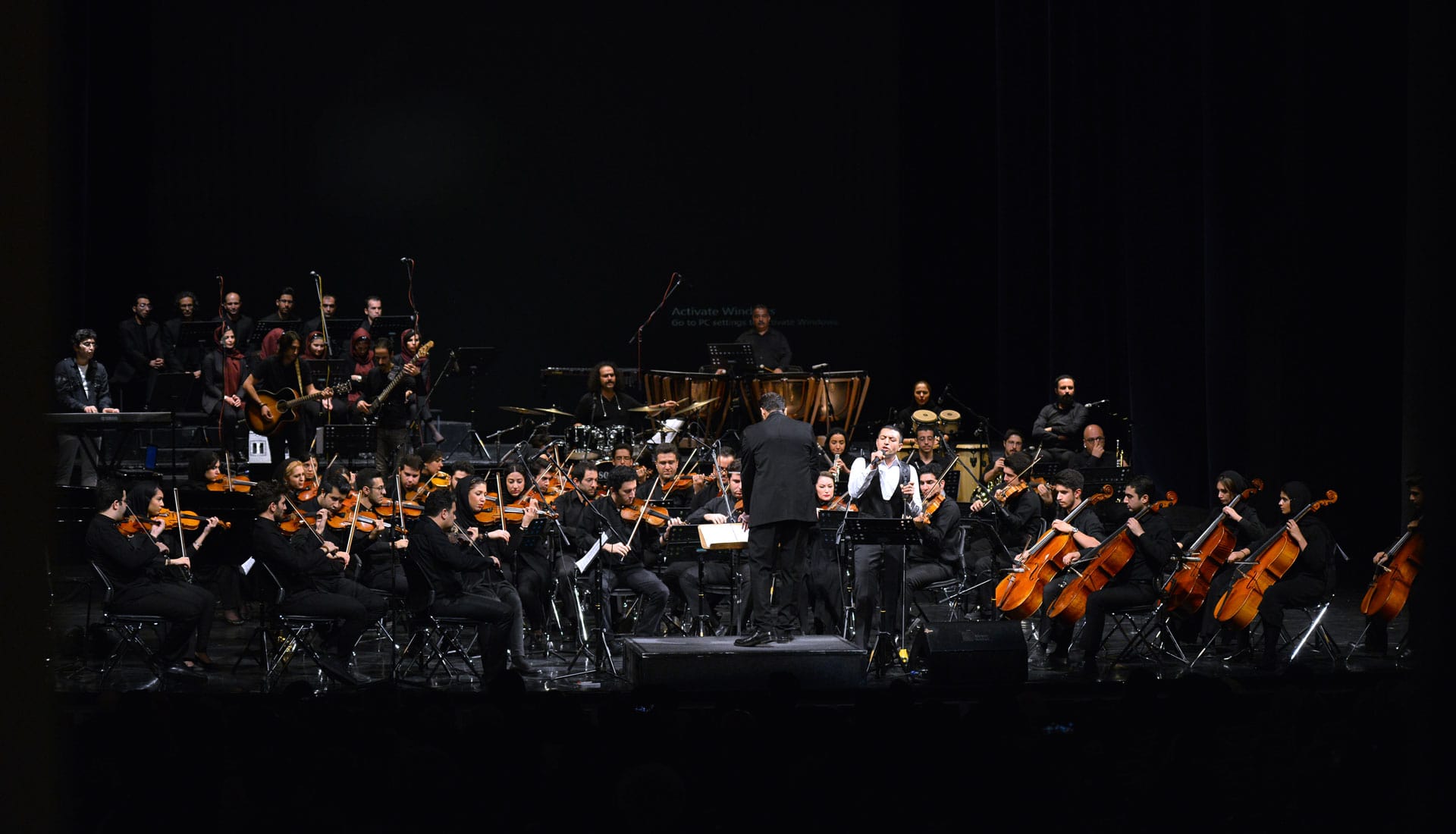
Istgah Orchestra
International Orchestra for Global Peace
International Orchestra for Global Peace
Istgah is more than an orchestra, it is a cultural movement. Founded with a vision of peace and artistic dialogue, Istgah brings together musicians from diverse backgrounds to create performances that transcend
From Vienna to Seoul, Istanbul to Tokyo, our journey as an international orchestra has echoed across festivals, embassies, and cultural landmarks.
But what sets us apart is not only the countries we perform in, it’s the message we carry.
We believe that music is a universal language that can connect hearts, rebuild understanding, and inspire change.
Every performance is a step toward global peace, a bridge between cultures, and a tribute to the children and voices that remain unheard.
Our repertoire merges Persian musical heritage with contemporary global influences. Traditional instruments meet symphonic power, creating a soundscape that is both rooted and revolutionary. Whether it’s a stage in Europe, a cultural exchange in Asia, or a peace initiative in the Middle East, Istgah resonates as a voice of hope.
Istgah Orchestra collaborates with embassies, international institutions, and global festivals. Our projects often align with humanitarian themes, including children’s rights, climate awareness, and cross-cultural understanding.
See how Istgah continues to shape the world through art. From collaborative concerts to visual storytelling and musical theater, each initiative tells a different story, yet shares the same mission: unity through sound.

Istgah stands as a vibrant cultural and artistic hub, collaborating with renowned artists from Iran and across the globe, all in pursuit of elevating Iranian culture and art. It envisions itself as a conduit, utilizing the expressive power of Iranian art to extend an olive branch of peace and camaraderie to the world.
Istgah stands as a vibrant cultural and artistic hub, collaborating with renowned artists from Iran and across the globe, all in pursuit of elevating Iranian culture and art. It envisions itself as a conduit, utilizing the expressive power of Iranian art to extend an olive branch of peace and camaraderie to the world.
Istgah – the beginning of harmony

Istgah – the beginning of harmony
Istgah stands as a vibrant cultural and artistic hub, collaborating with renowned artists from Iran and across the globe, all in pursuit of elevating Iranian culture and art. It envisions itself as a conduit, utilizing the expressive power of Iranian art to extend an olive branch of peace and camaraderie to the world.
Istgah stands as a vibrant cultural and artistic hub, collaborating with renowned artists from Iran and across the globe, all in pursuit of elevating Iranian culture and art. It envisions itself as a conduit, utilizing the expressive power of Iranian art to extend an olive branch of peace and camaraderie to the world.

Istgah orchestra is a platform for learning and cultivating authentic Iranian art. The Istgah association, with the aim of promoting Iranian art, has provided a space so that enthusiasts and students can learn and benefit from this valuable tradition.
The Canada International Academy with the aim of growing and excelling education in the international sector, after their success in Canada, aim to hold joint classes between Iranian and Canadian students.


Istgah orchestra is a platform for learning and cultivating authentic Iranian art. The Istgah association, with the aim of promoting Iranian art, has provided a space so that enthusiasts and students can learn and benefit from this valuable tradition.

Find out about the next Istgah
© Copyright Istgah Orchestra
© Copyright Istgah Orchestra